Wrath of Daimajin Blu-ray Movie
HomeWrath of Daimajin Blu-ray Movie 
大魔神逆襲 / Daimajin Strikes Again / Daimajin gyakushuArrow | 1966 | 87 min | Not rated | No Release Date
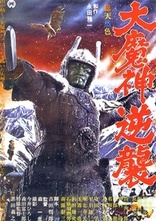
Price
Movie rating
6.9 | / 10 |
Blu-ray rating
| Users | 0.0 | |
| Reviewer | 3.5 | |
| Overall | 3.5 |
Overview
Wrath of Daimajin (1966)
In a mountainous region of Japan, Lord Arakawa kidnaps the men of nearby villages to use as slave labor, producing gunpowder from his sulfur pits. A band of young boys decide to rescue their enslaved fathers on their own.
Starring: Junichiro Yamashita, Tōru Abe, Hiroshi Nawa, Tanie Kitabayashi, Yūzō HayakawaDirector: Kazuo Mori (I)
| Foreign | Uncertain |
| Drama | Uncertain |
| Supernatural | Uncertain |
| Action | Uncertain |
| Fantasy | Uncertain |
Specifications
Video
Video codec: MPEG-4 AVC
Video resolution: 1080p
Aspect ratio: 2.35:1
Original aspect ratio: 2.35:1
Audio
Japanese: DTS-HD Master Audio Mono
English: DTS-HD Master Audio Mono
Subtitles
English
Discs
Blu-ray Disc
Single disc (1 BD)
Playback
Region A (B, C untested)
Review
Rating summary
| Movie | 3.5 | |
| Video | 4.0 | |
| Audio | 3.5 | |
| Extras | 2.5 | |
| Overall | 3.5 |
Wrath of Daimajin Blu-ray Movie Review
Reviewed by Jeffrey Kauffman July 29, 2021 Note: This version of this film is available on Blu-ray as part of The Daimajin Trilogy.
Arrow Video's relatively recent release of Django
4K
+ Texas, Adios BD caused me to jokingly ask, "When is a Django film not 'really' a Django film?", and in that regard
I'd
like to take a cue from a reliably ebullient Kim Newman who, in a supplementary introduction to the three Daimajin films collected by
Arrow for this new
release, suggests that this so-called "trilogy" may not in fact be properly termed as such. As several of the supplements spread across this three
disc
set get into, the general flailing of the Japanese film industry and the particular straits Daimajin producing studio Daiei found itself in by
the
mid-sixties meant that when some idea hit with the public, it was played for all it was worth, and in that regard the three Daimajin films
are
probably a salient example, since, as Newman and some of the commentators mention, the three films basically tell the same tale with slight
differences. The third film, called Wrath of Daimajin here, but Daimajin Strikes Again on a previous release on Blu-ray (see
below),
arguably offers the most distinctive ambience due to its emphasis on children, something that (as is again mentioned in some of the supplements)
tends to link that film, at least subliminally, with Daiei's "other" big "monster franchise" of this same period, Gamera. One of the kind of funny things about all three
Daimajin films is that, as commentators Tom Mes and Jasper Sharp discuss in their analysis of the second film, their entire raison d'etre
was ostensibly their special effects, and
yet for the most part all three films offer around one hour of largely effects free narrative before releasing the kraken (so to speak) in the final few
minutes.
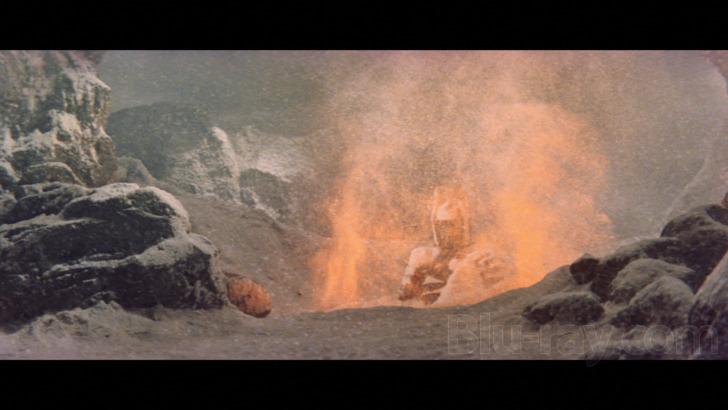
All three Daimajin films were aggregated in a previous release on Blu-ray by Mill Creek Entertainment, and for those wanting plot recaps, I refer you to my colleague Martin Liebman's Daimajin / Return of Daimajin / Daimajin Strikes Again Blu-ray review. Marty's review is also a good resource for those who like to compare screenshots, as well as to see what supplements each version offers. As I've often repeated, "different reviewers means different opinions", and so you will see my scores may vary from Marty's.
Wrath of Daimajin Blu-ray Movie, Video Quality 
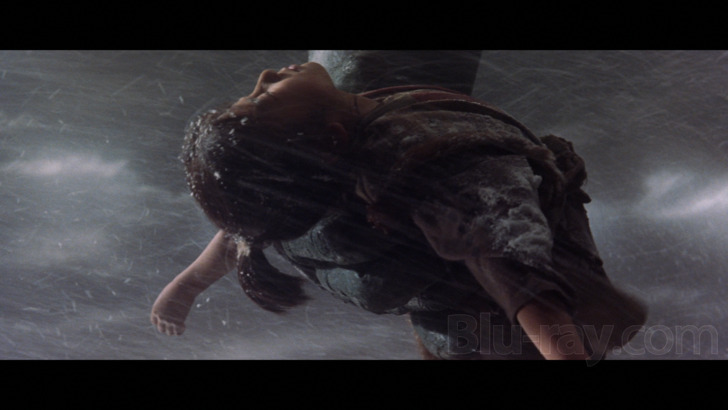
Wrath of Daimajin is presented on Blu-ray courtesy of Arrow Video with an AVC encoded 1080p transfer in 2.35:1. Arrow's insert booklet contains only the following fairly generic verbiage about this transfer, which is lumped in with the two others in the set:
Daimajin, Return of Daimaijin / Daimajin ikaru and Wrath of Daimajin / Daimajin gyakushu are presented in their original aspect ratio of 2.35:1 with mono sound. The High Definition masters were produced and supplied by Kadokawa, with original grading and restoration by Arrow Films at R3Store Studios.While I don't have the Mill Creek release to do a side by side comparison, a cursory glance through screenshots suggests that this Arrow release offers somewhat darker presentations for all three films, and with a palette that doesn't have the yellow-green look of the Mill Creek release, but which can be skewed more toward a purplish tone at times. I personally found Wrath of Daimajin to be the most generally pleasing looking presentation in Arrow's set, though this film also can show minor signs of age related wear and tear, including things like speckling (especially white specks). The palette looks nicely suffused for the most part, especially in some of the outdoor material. As with the two other films in this set, the compositing can often show its seams (see screenshot 14), but this film features some of the more impressive special effects of the, um, trilogy (sorry, Kim), and while they may be deemed "quaint" by younger viewers, they look generally fine in this presentation.
Additional English language version materials for Majin, the Monster of Terror (Daimajiri) and The Return of the Giant Majin (Return of Daimajin) were sourced from MGM. The picture elements were scanned at Company 3 and audio transfer work was completed at Deluxe Media, Los Angeles. Grading and restoration and audio work was completed at R3Store Studios and The Engine House Media Services.
Wrath of Daimajin Blu-ray Movie, Audio Quality 
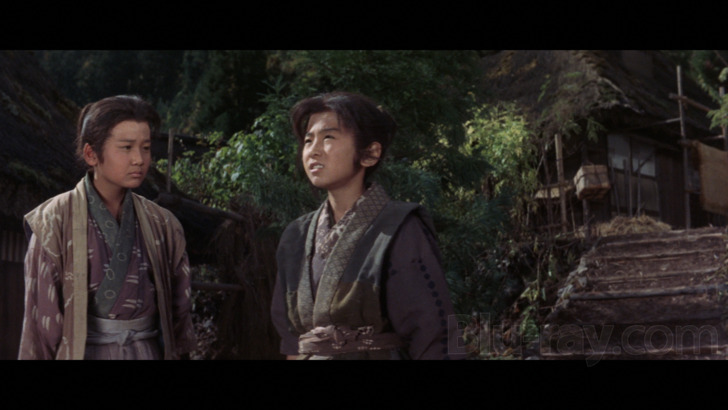
Wrath of Daimajin features DTS-HD Master Audio Mono tracks in either Japanese or English. As with the first film, my ears didn't discern any huge differences in overall mixes and/or amplitude levels between the two tracks, and both deliver dialogue, effects and score effectively. Once again, there's some baseline background hiss and crackle on the Japanese track which interestingly isn't on the English language version, though the Japanese track arguably is still a bit more full bodied overall. Optional English subtitles are available.
Wrath of Daimajin Blu-ray Movie, Special Features and Extras 
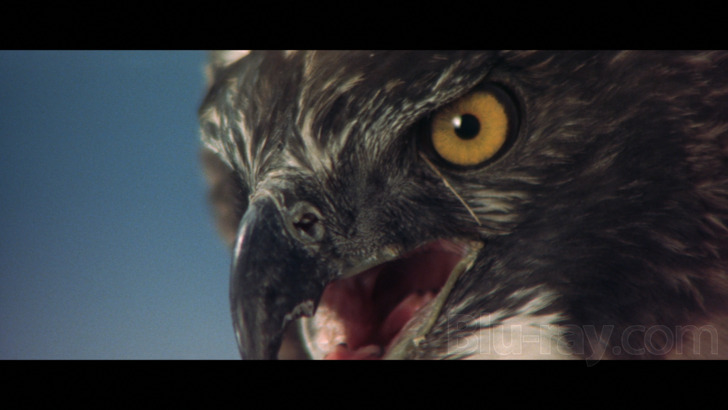
- Audio Commentary by Jonathan Clements
- Interview with Fujio Morita (HD; 1:27:29) is an interesting career overview featuring the noted Daiei cinematographer. There's some introductory text in English, but the interview is in Japanese with English subtitles.
- Original Theatrical Trailer (HD; 2:24)
- Original Teaser Trailer (HD; 00:56)
- Image Gallery
Wrath of Daimajin Blu-ray Movie, Overall Score and Recommendation 
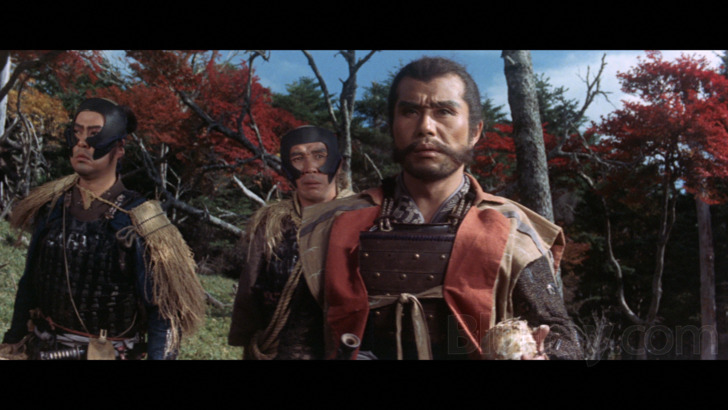
There's a certain sweetness to this third and last Daimajin outing courtesy of the kids involved, and this film also doesn't wait until its final twenty to thirty minutes to dole out its special effects. Technical merits are generally solid, and the supplements very interesting. Recommended.
Similar titles
Similar titles you might also like
(Still not reliable for this title)

Return of Daimajin
大魔神怒る / Daimajin ikaru
1966

Daimajin
大魔神
1966

Gamera: Guardian of the Universe
Gamera daikaijū kuchu kessen
1995

Gamera 3: Revenge of Iris
1999

Gamera vs. Barugon
Daikaijū kettō: Gamera tai Barugon
1966

Gamera
Daikaijū Gamera / Gamera, the Giant Monster
1965

Gamera vs. Gyaos
Daikaijū kūchūsen: Gamera tai Gyaosu
1967

Gamera vs. Viras
Gamera tai uchu kaijū Bairasu / Destroy All Planets
1968

Gamera 2: Attack of the Legion
Gamera 2: Region shurai
1996

Gamera vs. Zigra
Gamera tai Shinkai kaijū Jigura
1971

Gamera vs. Jiger
Gamera tai Daimaju Jaiga
1970

Gamera vs. Guiron
Gamera tai daiakuju Giron
1969

Gamera: Super Monster
Uchu kaijū Gamera
1980

Destroy All Monsters
怪獣総進撃 / Kaijū sōshingeki
1968

Along with the Gods: The Last 49 Days
Singwa hamkke: Ingwa yeon
2018

Godzilla vs. Megalon
ゴジラ対メガロ / Gojira tai Megaro
1973

Chinatown Kid
1977

Godzilla on Monster Island
地球攻撃命令 ゴジラ対ガイガン / Chikyū kogeki meirei: Gojira tai Gaigan / Godzilla vs. Gigan
1972

Terror of Mechagodzilla
メカゴジラの逆襲 / Mekagojira no gyakushu
1975

Godzilla vs. Biollante
ゴジラvsビオランテ / Gojira vs. Biorante
1989
